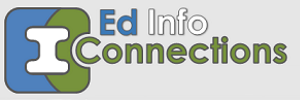In recent months there has been increasing attention to the need for education technologists who can focus on the many large and not so large datasets that are proliferating in education. Some have called for exploration into the educational data sciences and asked about how to prepare this new type of professional. Many questions are emerging about this important area. What classes should they take? Can this be a college major or should it be a professional certification? How is this different from educational statistics? I have another kind of question. Is educational data science the best term or are other terms such as educational decision science more appropriate?
Data Sciences
The term data science is fairly new. According to Wikipedia, it originated in 2001 when William S. Cleveland wrote Data Science: An Action Plan for Expanding the Technical Areas of the Field of Statistics. There is now a Journal of Data Science that features a range of statistical topics published by Columbia University. According to the Wikipedia entry:
Data science is a discipline that incorporates varying degrees of Data Engineering, Scientific Method, Math,Statistics, Advanced Computing, Visualization, Hacker mindset, and Domain Expertise. A practitioner of Data Science is called a Data Scientist. Data Scientists solve complex data problems. An individual data scientist is most likely an expert in only one or two of these disciplines and proficient in another two or three.
We see now data scientists emerging with many social media concerns. For example, Twitter and Facebook now have data scientists to comb through the massive databases – Big Data – that they collect through their businesses. Many education retailers and online education concerns are doing the same. It would seem that positions for Education Data Scientists should be appearing in job boards and curriculums before too long. But is this the best or the only way to go?
Decision Sciences
While the field of Data Science if fairly new and parallels the emergence of large successful Internet ventures, the field of Decision Sciences is older and already established as an academic field. Many business schools have Decision Sciences departments that also emphasize the use of statistical tools and large data sets. According to the Decision Sciences Institute, the Decision Sciences Journal, which began publication in 1970:
Uses the latest computer technology, mathematical and statistical techniques, and behavioral science. The journal is subscribed to by more than 1,000 libraries and read by over 4,000 faculty and students in all functional areas of business, as well as by corporate-related personnel and consultants.
Where Data Sciences is emerging, but yet to have a solid academic home yet, Decision Sciences is well established with management science as a form of analysis that involves organizational processes. Decision Science would then seem to map well onto educations interest in data use in districts and schools to help identify students needing support and to optimize staff arrangements.
Information Science
And then, there is a field that is about as old as Decision Science called Information Science. Information Science grew out of the field of Library Science. While it can include statistics, it often focuses on a broader range of information. There is both a Journal of Information Science and an association named the American Society for Information Science and Technology). According to its Wiki entry:
Information science is that discipline that investigates the properties and behavior of information, the forces governing the flow of information, and the means of processing information for optimum accessibility and usability.
In a number of ways, Information Science seems a good fit for education. Educational organizations do use a wide variety of information sources. Many are statistical, but many are not. Education as a field involves complex organizational terrains where classification schemes (ex: the NCLB subgroups and proficiency levels) are used by many.
A Science of Our Own
While these fields all provide some important conceptual tools that can help in education’s transition, difficult transition, into the information age, they are only parts of the answer. Does education have the potential for data analysis as is done at Facebook or Twitter? Possibly when tools like the Shared Learning Collaborative (SLC) emerge and become used. Can analysts use data to help guide process decisions as is done with business processes? In some cases, although the process is complex and made difficult by limitations in data, political structures, and federal regulations. Can information be considered broadly across different sites of learning and administration? Conceptually, yes, but the territory is vast. Connecting administration and teaching, for example, requires bridging different communities and often the data tools are crude and slowly developing. As necessary as this transition is, it is also going to continue to be difficult and will draw upon many fields as those working with education and data or information search for a science of their own.

Leave a Reply